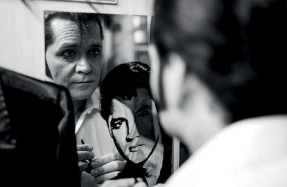The ethical photographer


Looking back at photographic history, there are several points in time that one could highlight when considering the relationship between photography and ethics. But one example in the early 1990s has remained the most noted and most referenced example of a photograph that sparked in-depth and widespread debate about the ethical implications of a single picture. In 1994, South African photographer Kevin Carter won a Pulitzer Prize for an image he took the year before–that of a young, emaciated Sudanese boy stalked by a vulture. Appearing in The New York Times in March of 1993, the image prompted hundreds of calls to the newspaper with readers wanting to know the fate of the child, and if the photographer had intervened. After a flurry of criticism and harsh conversation in the months that followed, Carter would later go on to take his own life–unable to reconcile his role as a journalist with what he had witnessed in various parts of Africa.
A quarter of a century later, the actions of Carter are still being questioned by photojournalists, perhaps serving to underscore the little progress that photography has made when attempting to define its own ethical functions and responsibility. However, at a time when politics and ideology have never been more enmeshed, when racial, religious, and ideological turmoil has never been more divisive, all genres of photography are now being questioned more than ever as to their ethical foundations. Where photojournalism once copped the brunt of outside scrutiny, the questions being posed to this genre have been slightly altered while the sub-disciplines of editorial, advertising, fashion and even portrait photography have been brought into the gaze of those considering photographers’ motives and responsibilities.
You’re reading a preview, subscribe to read more.
Start your free 30 days



